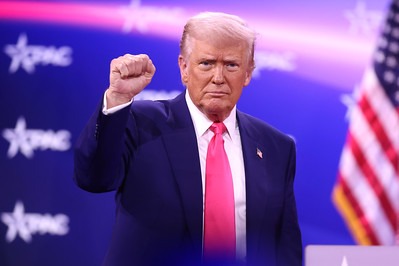By Edition8 News Staff
May 29, 2025
In recent weeks, President Donald Trump has issued a series of high-profile pardons and clemency grants, sparking both support and controversy.
On May 28, 2025, Trump granted pardons to former New York Congressman Michael Grimm and former Connecticut Governor John Rowland. Grimm had served seven months in prison for tax evasion, while Rowland had been convicted in two separate federal cases related to corruption and campaign violations. Both men expressed gratitude for the pardons, which were part of a broader clemency initiative.
The following day, Trump pardoned reality TV stars Todd and Julie Chrisley, who had been convicted of bank fraud and tax evasion in 2022. Their daughter, Savannah Chrisley, revealed that Trump had personally called to inform them of the decision, stating that they had been treated unfairly.
Trump also granted a full and unconditional pardon to Ross Ulbricht, the creator of the Silk Road dark web marketplace, who had been serving a life sentence for drug trafficking and other offenses. The pardon fulfilled a campaign promise made during the 2024 Libertarian National Convention.
One of the most significant actions was Trump's January 20, 2025, blanket pardon for over 1,500 individuals charged in connection with the January 6, 2021, Capitol riot. This included full pardons for all convicted participants and commutations for 14 individuals, such as Proud Boys leader Enrique Tarrio and Oath Keepers leader Stewart Rhodes, who had been sentenced to lengthy prison terms.
Trump characterized the prosecutions as politically motivated and described the pardons as a step toward national reconciliation. Critics, including Republican Senator Lisa Murkowski, condemned the move, arguing that it sent a "horrible message" to law enforcement and undermined accountability.
In late May 2025, Trump indicated he was considering pardoning Barry Croft Jr. and Adam Fox, the ringleaders convicted in the 2020 plot to kidnap Michigan Governor Gretchen Whitmer. Trump described their prosecution as potentially a "railroad job," suggesting the trial may have been unfair . This potential pardon has drawn criticism, particularly given Whitmer's prominence as a potential 2028 presidential contender.
Trump's pardoning decisions have raised questions about the use of executive clemency. Supporters argue that these actions correct perceived injustices and promote fairness, while critics contend they undermine the rule of law and could encourage future political violence. The appointments of allies like Ed Martin as the new Department of Justice pardon attorney have further fueled concerns about the politicization of the clemency process .
As President Trump continues to exercise his pardon power, the nation remains divided over the balance between justice and executive discretion.



